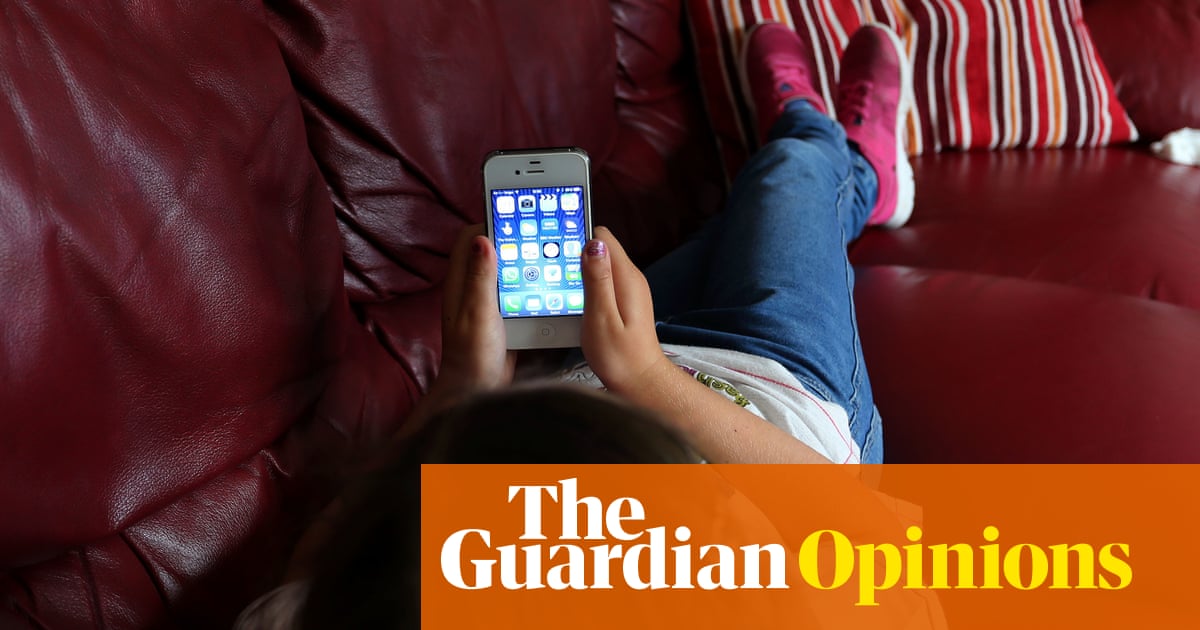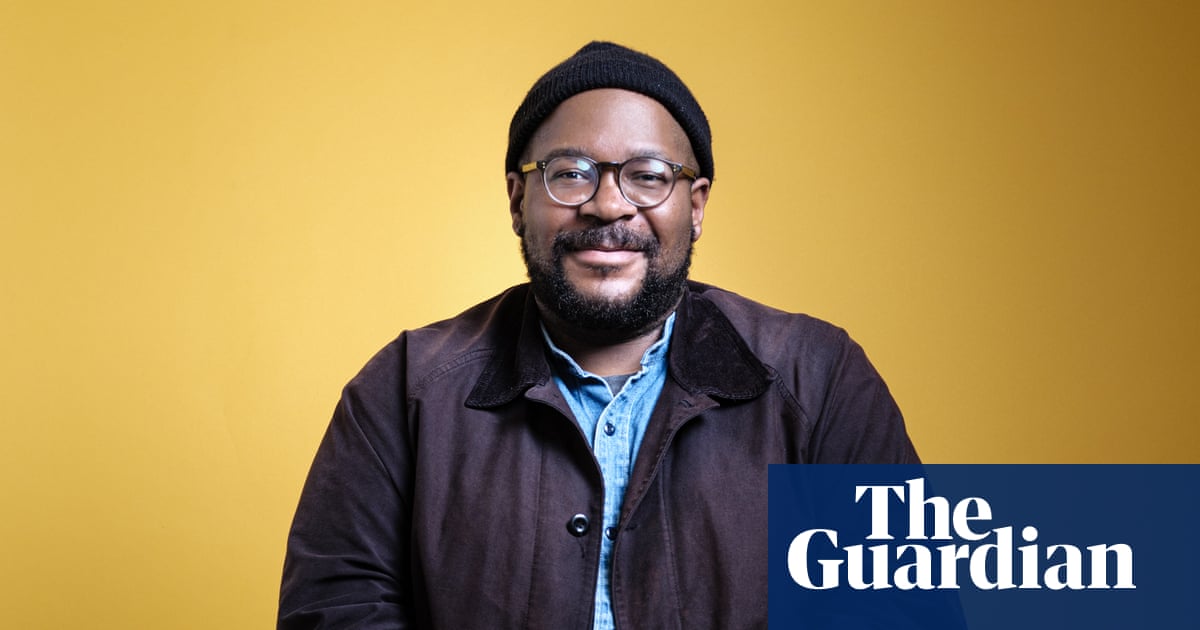
Ican’t recall exactly when we started referring to them as my vitamins. Looking back, it feels as if I woke up one day and my parents had it decreed: they were just to be one in a series of supplements for me to gulp down on my way out the door to school – nothing less, nothing more.
Every morning, my regimen remained the same: one Vitamin C and one echinacea tablet for my immune system. One disgusting fish oil capsule, for my brain health. And sometime after I turned 16, 50mg of Zoloft for the unspoken.
Back then, so much of my vacillating mental health was beyond what my Taiwanese immigrant parents had been prepared for. But they were trying. They did not want to talk about my depression, but they had to make sure I was taking my antidepressant.
And so there we were, every morning: “Don’t forget your vitamins.”
Mental health is a fraught topic among families like mine. Suicide is the leading cause of death for Asians ages 15 to 24 in the US, yet studies have shown that Asians are the least likely among all other racial groups to utilize mental health services.
Research has found that some norms within many Asian cultures – not talking about their feelings, believing that hard work and perseverance can solve all manners of crises – make it difficult for some to accept the existence of certain mental illnesses or understand the benefits of psychotherapy.
I am familiar with these findings because I’ve lived them. My parents had long been against the idea of medicating their youngest daughter, their baby, with unnecessary chemicals. But somewhere along the way – as the vitamin talk proved – they had understood it was necessary.
When I think back on this time in my life, I picture my father, painstakingly cutting up tablets of Zoloft for me with a pill cutter after my prescription changed to a smaller dose. I remember him having to leave work every Tuesday to take me to a therapist, a woman he didn’t trust and had argued with on at least one occasion.
My parents hadn’t entirely gotten it, I told my older sister on one of our family FaceTime chats recently – but at least they had been able to let go of some of their preconceived notions to get their daughter the help she needed.
My sister flinched. “Is that what you think happened?” she asked carefully.
My sister panned the phone over to where my mother sat, quietly looking down at the table. Just out of frame, my father gently walked my infant niece into a nap in the hallway behind them: an idyllic tableau of a family that talked daily over group chat. Through the grace of growth, distance and hindsight, our family had overcome any prickly residual grievances that remained around my teenage years – or so I thought.
My sister brought the phone back to her face. What actually happened, she told me, was that one of my friends had gone to a school guidance counselor, concerned about my depression and suicidal thoughts.
“The school called,” my sister said. “They told them that if they didn’t do something they’d call social services.”
In the background, I heard my mother murmur a soft confirmation.
Shame is a powerful emotion in Asian cultures. It is the reason why I am writing this piece using a pseudonym, a first since I began working in journalism when I was 17.
In Chinese, we have a concept of “losing face” that goes beyond that of embarrassment – it’s the loss of respect, dignity and standing. In short, it’s something akin to shame, and it rules our societal existence.
We do well in school so that we can get good jobs and we work hard at our jobs and we succeed all so that we do not bring shame upon ourselves and our families. We behave as perfect little daughters, sons, mothers, fathers and so forth so we do not bring shame upon us all as the model minority in a broken racial hierarchical system.
“You maintain face by carrying out the roles that are ascribed to you by one culture and one society,” said Dr Nolan Zane, professor emeritus of psychology and Asian American studies at the University of California, Davis. “That is also how you lose face. If you are somehow perceived as failing at that role, then you somehow lose face.”
Mental illness – specifically, living in a healthy manner with your mental illness – has no place in a culture rooted in shame. I may have made peace with my diagnoses long ago, and yet I find myself writing under a pseudonym because I now have someone else’s shame to contend with instead of mine: my parents’.
First, let’s discuss my shame, the shame of my teenage years. Thinking about that time period has always been terrifying because of the large blanks in my memory – a few therapists I’ve seen over the years have suggested that I blocked out certain recollections because they were traumatic.
I remember pieces here and there – like my sister on the phone from her freshman-year dorm room, screaming because I had attempted suicide. I remember feeling too much. I remember sometimes destroying things to find relief, I remember blood on my arms, I remember fighting nonstop with my parents, who really just did not seem to understand.
But I remember the shame most of all – the shame of not feeling able to do anything but lie on the couch. The shame of knowing something was so wrong when I was supposed to be perfect. The shame that always engulfed me after I emerged from those dark periods.
To my parents back then, mental illness conjured images of the homeless men we often saw on the street corners in Boston, mumbling to themselves. They didn’t think it was their daughter. My mother knew me to be a sensitive teenager – “always the sweet one,” she said – but did not think of me as depressed.
“We thought it was normal,” my mother told me. “If you had asked me, someone with my background, I would have just called it mood swings. It never would have occurred to me to call it an illness.”
This mindset is a common reason why Asians are less likely to seek mental health treatment for themselves or their loved ones, said Zane, the UC Davis professor emeritus.
It’s not so much a stigma, as every culture has some around the topic, Zane said. But many Asians do not believe depression and anxiety are actual illnesses.
“They just say, ‘that’s life’,” he said. “A lot of Asian Americans just say that persevering is a part of it for them.”
When a school guidance counselor contacted them during my junior year, my parents were baffled. “Nobody knows their child better than a mother,” my mother said. “But the school kept telling me, from the beginning, ‘All parents have denial.’ The school wouldn’t listen to me.”
Eventually, they formulated their threat: get her help, or we’ll call social services.
I remember my mother screaming during one of our fights: “They will take you away from us, is that what you want?” Looking back now, I can fully understand both the fear and resentment they felt in bringing me to seek treatment. “We were forced to do it,” my mother said.
Herein lies another common issue when it comes to connecting Asians with mental health services: when there’s a failure in communication, it’s up to the mental health professionals to make a culturally competent case for why mental health treatment is necessary.
“It’s almost as if when certain cultures don’t focus that much on certain psychological issues, when it’s brought up, it’s kind of like speaking a different language to parents and families,” Zane said. “To me, it’s incumbent on the mental health profession to make that translation.”
Threatening to call social services – essentially implying bad parenting – was clearly not the answer. In our conversations, Zane talked instead about meeting clients on their level and equating the value of treatment to their values. He’d help parents understand that illnesses like depression and anxiety are in fact debilitating by showing them research that would project how much school their kids could miss if they went untreated.
“You have to come from their experience,” Zane said. “A lot of Asian American parents and families, they worked really hard to get to the United States, they worked really hard for their families. And then someone gets depressed. They don’t understand it.”
At the same time, I think to myself as I listen to Zane, no amount of translation would have solved the crux of the matter – a terrible, haunting piece of information which I always knew, but had buried for 16 years out of love: my mother simply didn’t believe me back then.
For two weeks after that original FaceTime call with my sister, I knew I had to talk to my mom about it. But I didn’t want to. Maybe the mind forgets for a reason. Maybe I loved my mom more than I wanted closure.
When I finally gathered the courage to pick up the phone, she was ready with answers.
“I was so mad at you at that time,” she told me. “I said, ‘Don’t try to use this to escape responsibilities. When there is no project due, when there are no examinations, you are a happy sweetheart.’ You were a funny girl. For some time, I kept thinking you were using this as an excuse.”
She knows now that I was depressed. After I graduated college, she realized the depth of what I had been struggling with after she stumbled upon one of the few journals I hadn’t destroyed. She knows and accepts that I’ve since been diagnosed with a slew of other disorders.
But back then, she thought it was typical teenage angst. Hormones, moodiness. A bad temper.
“The main problem wasn’t that we were in denial,” my mother said. “Please don’t say denial. I hate denial. It wasn’t that we felt shame. We would have done anything, we would have sacrificed anything, if we had realized it was an illness or a disease. But the definition was different for us.”
We talked about how awful the school made my parents feel, how they felt forced to take me to treatment and allow a doctor to medicate me with an antidepressant they did not trust. We began to make peace with each other. I realized that the entire time I felt so trapped and misunderstood, they had too.
But my mother’s timelines don’t add up. She told me it all began for my family when the school got involved my junior year. Yet one of my only memories of that time was my sister reacting to my attempted suicide from her dorm room. That meant my family knew of my struggles at least two years before my mother said they did.
“There was one point when I did try to commit suicide though,” I said to my mother.
She paused before answering. “There was one time,” my mother admitted. “But the thing is, there was one time I tried suicide, too.”
Just as I had my freshman year of high school, she had slashed her wrists after she had failed a test. She had been like me as a teenager, my mother said, prone to high emotion.
“That’s why I didn’t think it was something,” she said of my suicide attempt.
She told me this in a brisk, matter-of-fact manner, like she was reading off a recipe, tactfully ignoring the wet sounds of my tear-choked breaths. Later she walked it back, saying that her attempt was never meant to be a true act of suicide. She never cut that deep, she claimed, and just wanted some relief from her parents who had been on her about her grades. But for the first time, I understood my mother better than I ever had before in my life. It’s always nothing until the day it accidentally becomes something.
I could finally see why my mother pushed so hard for me then to try and overcome my struggles on my own: she herself had to, so she did.
I’m revisiting my teenage trauma at a time when Asian Americans nationwide have been traumatized in recent months by acts of hatred. In this moment of heightened vulnerability for Asian Americans, the question now arises whether we can care for ourselves and each other without confronting the ghosts that dwell in our past.
The Asian American experience is not a monolith – it is as diverse, varied and widespread as our people. But for far too many of us, it is an experience steeped in generational trauma linked to wars, imperialism and genocide in the old world and poverty, hatred and discrimination in the new one.
“Our parents, their parents, their grandparents – they went through massacres, wars, poverty, and rarely talked about their struggles. It was just passed on,” said JR Kuo, program director for the National Asian American Pacific Islander Mental Health Association.
“It’s normal to carry the pain with us,” he said. “That is part of our culture.”
Out of respect and deference for our elders, we take on their hurts and stories without ever processing them, or helping them process them. We inherit their trauma as our birthright and subconsciously pass it on to our children.
My mother has told me enough of my family’s stories that I can trace the familial lines of our shared grief back to my grandparents fleeing communist China after the second world war. How does unprocessed trauma shape a parent and the choices they make? And how do we continue to pass that on, generation after generation?
Kuo pointed out that all traumas, big or small – from the aftermath of war to a relentless and punishing immigration process – can have long-term impacts on a person’s mental health.
“Once you get to this country, there’s this pressure to be American, to be white,” Kuo said. “Looking back when we’re young, I bet you got made fun of because of your food, how you looked, your language, everything. There’s a pressure to throw away your immigrant past, to the point where you have to sacrifice a lot of your identity, your customs, your past. That’s a lot of trauma.”
I think of what my mother endured as a teenager in Taiwan, and I wonder how many more girls like her eventually became mothers to girls like me. I wonder what advice they gave them. To go outside, be active, lose weight to bring up your self-confidence? This is what my mother told me to do back then, when all I wanted was to put a stick through my brain to make everything around me stop.
“Do you remember what you told me in college?” my mother asked me during a recent conversation. I had told her back then that I lied in all my therapy sessions, that I made up stories for my therapist. “I was so angry at you,” she said. She and my father had to pay out-of-pocket for sessions that they didn’t even believe would do anything for me.
In actuality, I had lied about lying. I thought that was what my mother had wanted to hear: that it was all nonsense, therapy and depression and all that. That she was right all along, and I was in on it, I was on her side.
Later, I realized that it was more than that. I had lied to her about lying because I wanted her to believe I was strong like they had wanted me to be, and that I could overcome my demons on my own, just like they wanted me to do.
But no one needs to do this on their own.
At night, when all is quiet, I sometimes allow myself to ask if I’m mad at my parents for how they handled my mental health. I was sick to the point of considering suicide, and I needed help. They didn’t believe me.
It’s at this point I always remember joking the day I turned 31 that it was a nothing age, an age of no milestones – and then realizing with a jolt that 31 was the year my mother gave birth to me. I still felt like such a baby myself, so inept, so unsure of everything – how could she be a mother, twice over, at this age?
I think that’s really what growing up is – understanding that your parents didn’t know what they were doing either. They tried their best with what they knew, even when they themselves were terrified.
When I told my parents I was writing this essay, they did not object. My mother is my biggest fan and is always thrilled to see my name in print. When I read the first draft of this piece to them, however, they reacted differently. My mother told me she could not sleep the following night. She felt naked, she said. She felt guilt. She hated the line about the blood on my arms – she should have noticed that, she said.
Had I still been 16 and feeling misunderstood, I would have assumed that my parents still felt shame about my mental illness – but they repeatedly told me it was not that. I realize now that it’s not shame of me that my mother feels, but shame of herself as a mother.
I’m publishing this essay under a pseudonym not because I feel shame over my mental illness or my experiences – and not because my family feels shame over my mental illness. I’m doing so because I love my family and I can hear what my mother is saying when she won’t meet my eyes on our FaceTime chats.
I understand their shame because it used to be my shame too. Because it was shame that made me hide those bloody arms from them when I was a teenager. It was shame that had me showing them an entirely different face outside my bedroom, when I should have been looking to them for help.
I’m doing it under a pseudonym to protect my parents from feeling shame for being human parents who were confronted with an unfamiliar situation – and so that a new generation of Asian parents will not fear being human if the circumstances call for it.
I’m publishing this essay so that a new generation of Asian teenagers doesn’t have to feel that shame.
We’ve come a long way as a family when it comes to mental health. We share everything with each other, but it took almost a decade before I could feel comfortable telling them that I spent the weekend holed up in bed or was afraid to leave the apartment – and they, in turn, felt OK listening to me and offering support.
My father now talks with admiration about Grand Slam champion Naomi Osaka and the stand she’s taking for mental health. And these days, my mother is fierce in making sure I find a good doctor.
“You have to live responsibly,” she said. “You have people who love you.”












